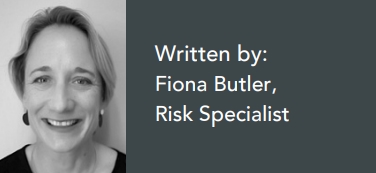Please insurance company, I want some more!
The famous line from Charles Dickens’s novel ‘Oliver Twist’ rings true when claiming from a Life Insurance company. “Please sir (madam), I want some more!”, which really should not be the case after one has faithfully, year in and year out, contributed for risk cover.
Clients, rightfully, acquire risk cover as part of their holistic financial plan. Cover provides security for an occurrence in the future, be it disability, death, or dreaded disease. Many of us pay premiums for years without claim, until the fateful day when some event occurs. The day when all the financial sacrifice of servicing a policy is justified. This claim payment should help our dependents and beneficiaries carry on without us or help us survive should we be rendered impaired and unable to work and live normally. That’s the plan and motive when taking out a policy. However, plans and circumstances change, such is the nature of life. In recent years, with the advancement of medical research and the addition of Artificial Intelligence, medical science has progressed significantly. Nowadays diseases, illness, injuries and conditions can be identified a lot further off than in previous times. This allows many to act sooner, allowing for a higher quality of life pre death or post injury or illness.
Clients can claim for a list of medical conditions against their policies under an income, disability, or dreaded disease benefit.
At Harbour Wealth we have assisted many clients successfully claim these benefits that they were rightly entitled to. When a client has paid for a benefit against an unforeseen future event, they must be compensated for their contribution and trust they have given their insurer.
Recently a client of ours was diagnosed with skin cancer and thankfully had a policy covering the condition. She completed all the necessary documents, which are tedious at the best of times. Thereafter we assisted in the claim submission, as part of our holistic service offering. The claim was approved, however, only an initial payment of 50% of the cover amount was awarded based on the life company’s assessment criteria. This was then upgraded to a 75% claim, as the client had an ‘upgrade payment’ benefit on her policy.
This cancer, however, is a Standardised Critical Illness Definitions Project (SCIDEP) definition and should have paid 100%, based on our professional understanding.
SCIDEP is not a law but more a guideline for life insurance companies.
However, historically most companies have paid 100% for the condition in question, but this company did not. Thankfully we noted the underpayment and requested an inquiry. The insurance company replied that they were not aware that their claim definition was incorrect and subsequently updated their criteria to be in line with the wider industry. Most importantly, the assurer paid 100% of the claim. It is interesting to note that our client was not aware that her claim was partly honoured and was happy to accept the initial payout.
Another client of ours suffered a heart attack, also a SCIDEP condition. The insurance company only admitted a 25% payment for the medical procedure, and not the actual heart attack. We knew the client had experienced a SCIDEP event, so we went back to the insurer and requested a reassessment of the claim. Eventually the insurer conceded based on the evidence, and because we, as traders in life assurance, were not going to let it go for the sake of our client and for the reputation of the industry.
Another example is that of a client who had suffered a back injury and needed to claim from his temporary income replacement benefit. The insurer assessed the claim and declined it, citing client misrepresentation – furthermore they added an exclusion to the client’s policy that would prevent him from claiming for any future back related injuries. We were flabbergasted as we were certain the client had no prior back conditions and was not guilty of misrepresentation. After a tug-of-war the insurer reassessed the case and ended up honouring the claim as well as removing the exclusion.
All three claims were from different life insurance companies, which indicates that the industry needs to be kept in check and continually realigned with Treating Customers Fairly (TCF) legislation.
Simply put, it reads as very unfair when people contribute for years for a benefit, which when required, is restrained.
It is precisely during a crisis when one needs the cover to be paid as efficiently as possible, as we are often vulnerable and not up for a prolonged ‘fight’ with a large institution.
South Africans are, to their own detriment, notoriously resilient and shy to complain. This is why it is important to have experts in the life insurance field who understand the intricacies of risk cover and who can fight for your best interests, when you or your family are on the back foot.
Experts in the field are also there to ensure you are covered correctly, assist with underwriting, servicing and finally claiming from your policy.
At Harbour Wealth, we have a dedicated life insurance team, known internally as the ‘Risk Hub’, who assist our clients in controlling all facets of their risk policies. This ultimately leads to a fulfilling claims procedure and outcome, so that they won’t need to go back to the insurer, cap in hand and ask, “Please insurance company, can I have some more.”



